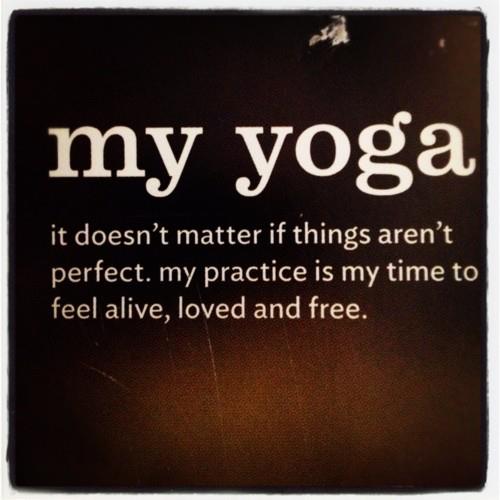 Recently published on Cafe Truth
Recently published on Cafe Truth
I was recently sent the question; “What do you think of vinyasa?”…Those of you who know me by now are probably laughing, “that’s it, here she goes, it’s never a one word answer, it’s always a blog post!” Correct! It is certainly a layered subject. Phases of the moon, sunrise/sunset, the flow of seasons, a flower blossoming, birthdays…these all reflect underlying patterns of fluidity and transformation in Nature. One of the grandfather teachers of yoga, T.K.V. Desicachar, writes, “Vinyasa is, I believe, is one of the richest concepts to emerge from yoga for the successful conduct of our actions and relationships”. I agree.
The word “Vinyasa” is a derivative of the Sanskrit term, nyasa, which means “to place” and the prefix, vi, which means “in a special way”. Musicians will relate to this, as the sequencing of notes forms a melody. Yet another meaning of vinyasa in the Yoga teaching world, relates to sequencing of postures which needs to be carefully planned to properly ensure students are warmed up for challenging poses, then move through a counter pose and then rested for integration. In this way, vinyasa teaches us to cultivate an awareness of one action linking to the next, both on and off the yoga mat, a meditation in motion.
Vinyasa as a style of yoga is basically a class that continues to flow, and many of these are based on Sun Salutations. You do not always get a chance to deepen into a pose or learn all the foundational skills required, because one posture moves into the next, flowing hopefully with a strong connection to one’s breath. If done without this crucial link, it just becomes a sport, and plays into the modern day need for an adrenalin rush. Yoga is a system not a sport.
As a Yoga Therapist, I assess the needs of a student, and choose a progressive approach towards meeting these needs, so vinyasa as sequencing can include different components: it is a way to warm up the body in specific ways, to learn the skills required in the postures I am going to be including in the session. To me, vinyasa is not equal to sun salutations, there are many different sequences that can be utilized. Vinyasa should not be a one size fits all. I also hold postures with support, to build strength, teach the body kinetic skills and alignment that will improve posture and challenge one to maintain a calm breath and deep focus while all this is happening. It helps to wake up the body’s sluggish or stagnant or underworked zones. I like restoratives, again, with support, to calm the body’s overworked areas. My vinyasa, in other words, is a flowing sequence but the flow allows me to stop, look inside, and listen…in addition to strengthen, tone, build strength, relax.
To understand the concept of a one-breath per movement vinyasa, here is a little sequence to try now:
1. Sit tall, bring hands in front of chest to prayer pose.
2. Inhale as you stretch your arms up, come to about 10% above shoulder height, turn the palms up, reach up to parallel.
3. Exhale, bring the arms back to prayer pose 10-15 times.
This simple exercise shows you how there is a mindfulness built into our little flow. Also, how when you use your breath, you get absorbed in a steady stream of consciousness (flow).
Foundational to the system of Yoga, is that vinyasa, or “artful sequencing” as Shiva Rea calls it, is intended to apply to our daily life as well. Whether this means something simple as brushing your teeth after a meal, setting up your appointments so you have scheduled some time for your own peacefulness, saying “thank you” to someone for cooking you the perfect dinner, “job well done!’ after your team completes a project at work. The approach of the practice of vinyasa is to honor each of the stages and understand how each step builds a foundation for the next one. Preparedness and mindfulness go hand in hand. Consistent Yoga practice builds this in your consciousness, and evolves it in your life, the way a seed grows, forming roots, into a tall tree.
You can’t take the next step before being aware of where you are starting from, so every action plan begins with this question. This is what I would ask the man who sent me the email. What is your physical, mental, emotional starting point? Then, be open to the honest answers that are generated from your own inner guidance system. This will help you create an action plan, your vinyasa, for wellness – on or off, the yoga mat.
Om shanty, shanty, shanty
Photo credit: Rana Waxman
 Meet the Author: Rana Waxman
Meet the Author: Rana Waxman
Rana Waxman is a registered Yoga Therapist. Her own love of Yoga began in the late 1990’s and she has been teaching ever since. Rana’s extensive background in somatics and practice as a licensed massage therapist, have earned her the nickname “the muscle whisperer”. She is well-known in her home city, Montreal, as being a pioneer of bilingual Yoga TV, with her show, “Yoga Chez Vous” which translates to “Yoga At Your Home”. Rana believes that Yoga is a system which is accessible to everyone, although not a one-size fits all practice. Her specialty is seeing the unique needs of each individual and tailoring the yoga practices that will help empower her students to lead meaningful lives off the mat. Rana is a regular contributor to MindBodyGreen, Greenster and Elephant Journal, and CaféTruth and is often called the “Modern Yogini”. Her inspired style blends, vinyasa, kinetic skills, alignment and restorative work. Rana sees and teaches Yoga as an unfolding meditation in motion, leading to improved performance, posture, and peaceful positivity
February 12, 2013 | Rana Waxman




